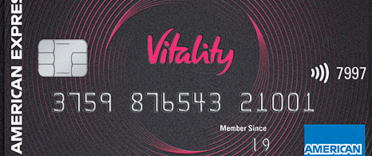 If you need to borrow money, you may be considering applying for a credit card or personal loan. Both credit cards and loans can help you to fund purchases such as a new car or home improvements, or they can help you to consolidate existing debts. However, it is important to understand the differences between them and choose the option that is best for you. In this article we will take you through the main pros and cons of credit cards and loans, so that you can decide which type of borrowing to go for.
If you need to borrow money, you may be considering applying for a credit card or personal loan. Both credit cards and loans can help you to fund purchases such as a new car or home improvements, or they can help you to consolidate existing debts. However, it is important to understand the differences between them and choose the option that is best for you. In this article we will take you through the main pros and cons of credit cards and loans, so that you can decide which type of borrowing to go for.
Loan or credit card: What are the differences?
Loans and credit cards are both forms of borrowing. They allow you to spend money, then pay off your debt at a later date. However, there are key differences that can make one option a much better fit for you than the other. Here are the main differences you should be thinking about:
| Credit Cards | Loans |
| Can be used for small purchases | Suit large expenses, such as home improvements |
| Can be used at short notice in emergencies | Getting the money can take time |
| 0% interest options available | Interest rate will depend on the type of loan, the repayment period and the borrower's history |
| Can be repaid on a flexible schedule | Consistent monthly payment amount (with fixed-rate loans) |
| Balance can be paid off without interest (either at the end of the billing period or before a 0% term ends) | Interest costs clear from the outset |
| Can be used to build a reliable credit history | Best loans reserved for borrowers with a good credit history |
Personal loan vs credit card
A credit card allows you to borrow up to a certain limit, as set by your credit card provider. This limit could be a few hundred or a few thousand pounds and is often determined by your credit rating. The higher your credit score, the higher your credit limit is likely to be. Your income may also play a part.
Your credit card provider will have a set minimum repayment that you must make each month, but it’s best to pay more if possible. As you repay the money, you can also borrow again. Some credit cards offer interest-free deals for several months, but others charge interest unless you pay off the full balance each month.
You can find out more by reading our article 'What is a credit card?'.
Personal loans, on the other hand, typically allow you to borrow a larger sum of money as a lump sum. You then repay a fixed amount each month over a set ‘term’ – this is typically between one and five years, although some providers let you borrow over 7 years or longer.
The amount of interest you are charged will depend on how much you borrow and the length of the term. Rates can be more expensive for smaller borrowing amounts, say under £5,000.
You can learn more about loans on our 'What is an unsecured loan?' page.
The best time to use a credit card
A credit card can be a good option if you need to spend a reasonable sum of money unexpectedly.
Credit card example
You are planning a holiday abroad, but you are not sure if you will be able to save up enough money for the trip. You take out a credit card that charges 0% interest for 12 months. If you need to use the card, you can pay off the balance over the remaining months of the interest-free period. If you don't need to use it, you won't need to pay any interest or fees.
How to find out which credit card is best for you
You can use Money to the Masses partner Creditec* to quickly build a list of the credit cards that match up with your needs. By simply adding in a few basic details, you will get a tailored collection of the best credit cards for you. You can use your Creditec results to check how likely you are to be accepted for a certain card, which cards available to you offer the best rewards or find out what option will leave you with the lowest fees to pay. Creditec is able to check your eligibility without running a full credit check, which means your credit score will not be affected. Click this link to start your comparison*.
The best time to use a loan
A loan can allow you to borrow a significant sum of money and pay it back over multiple years.
Personal loan example
You need £5,000 to fit a new bathroom, which is more than the credit limit on your credit card. You take out a personal loan as you know you can afford to repay the £5,000 plus interest over three years. As you know how much each repayment will be, you can plan paying off your loan into your monthly budget.
Pros and cons of credit cards
Here is a summary of the pros and cons of getting a credit card:
Pros of credit cards
- You may be able to borrow interest-free – 0% purchase and 0% balance transfer cards allow you to avoid paying interest for a number of months
- Payments are flexible so you can choose how much to repay each month (so long as it is at least the minimum monthly repayment)
- You can pay off the amount in full without penalty
- Credit card purchases are protected by Section 75 of the Consumer Credit Act. If you buy something costing between £100 and £30,000 with a credit card (even if you put down a deposit), your card provider is jointly liable with the retailer if something goes wrong. For more details on this, read our article 'Section 75 of the Consumer Credit Act explained – your rights and how to claim'.
Cons of credit cards
- Minimum monthly repayments are often low, so it is best to pay more than that if you can
- Interest rates can be high, particularly if you have a poor credit rating
- There is no deadline by which you need to have paid off your balance, so it can take a long time to clear. If your credit card comes with a 0% deal and you don’t clear your balance before it ends, you will start paying interest
- Credit limits can vary and may not be high enough for your requirements
Check out our guide to the best credit cards in the UK.
Pros and cons of personal loans
Here is a summary of the pros and cons of getting a personal loan:
Pros of personal loans
- You can usually borrow more with a personal loan than with a credit card
- You can choose how long you need to repay the amount borrowed
- You may pay less in interest than you would with a credit card
- Your loan repayments will remain the same each month
- Some providers let you make extra monthly payments with no charge
Cons of personal loans
- If you want to borrow a smaller amount, say £3,000, interest rates can be higher
- If you want to pay off your loan early, you may have to pay a penalty charge. This can be equivalent to one to two months’ interest
- Monthly payments are not flexible
There is more information on personal loans in our article 'Which is the best type of loan for you?'.
Is personal loan debt better than credit card debt?
Any type of borrowing can affect your credit rating and influence how you are viewed by mortgage providers and other lenders. If you are hoping to get on the property ladder, you may be wondering is it better to have loan or credit card debt when applying for a mortgage.
Ultimately, it doesn’t usually matter which type of borrowing method you use. Whether you have a credit card or personal loan, the key is to make sure you keep up with your repayments and pay on time. If you are late with a payment or miss it completely this will leave a mark on your credit file.
Providing you make your repayments on time, keep within your credit limit and don’t overstretch yourself, taking out a credit card or personal loan can actually benefit your credit rating as it will show lenders you are a responsible borrower. If you have no credit history at all, providers may be less willing to lend to you. You can learn more about boosting your credit score by reading our article ‘How to improve your credit score quickly’.
When should you use a credit card?
On the whole, credit cards are better if you are borrowing a small sum of money, particularly if you can benefit from an interest-free deal. They are also a good option if you want some flexibility making your repayments and don’t want to be tied to a fixed amount each month.
Credit card purchases are also protected under Section 75 of the Consumer Credit Act. This means that as long as you have spent between £100 and £30,000, if the goods fail to turn up or are faulty, you can claim your money back. This can be particularly useful if you are buying online. Find out more in our article 'How do credit cards work?'.
Credit cards are not only useful for spending purposes, however. You can also use them to consolidate existing debt. If you have existing credit card debt and you are paying interest, a 0% balance transfer credit card allows you to shift over your existing debt and pay no interest for a number of months. Be aware you will usually need to pay a transfer fee and once the 0% deal ends, you will pay interest. You can find more information on balance transfer cards in our article 'Best 0% balance transfer credit card deals'.
If you are unsure whether a credit card will suit your financial situation, or just don't know which one to go for, read our article 'Which credit card is best for me?'.
When should you use a personal loan?
A personal loan can be a good option if you need to borrow a large sum of money – perhaps to fund home improvements such as a new kitchen or extension. A personal loan may also be preferable if you want to stick to a budget as payments are fixed.
In some cases, you may need to choose between a personal loan and remortgaging. We have more information in our article 'Is it better to remortgage or get a loan?'.
You can also get a personal loan to pay off credit cards. If, for example, you have balances on a number of different credit cards, you can move these across to one single loan. This can make managing your finances easier as you will only have one lender to pay each month, rather than several.
Taking on additional lines of credit to manage existing debt may not be the right option for everyone. If you are unsure what steps you need to take to deal with your debt, try asking for free debt advice. We have more information in our article ‘Where to get free debt advice’.
Things to consider before taking out a credit card or personal loan
Before you take out a credit card or personal loan, it is worth considering the following:
- What do you need the credit for? If it is a large purchase, is this something you could live without?
- Will you be able to afford the monthly repayments? If you are applying for a credit card, try to pay off more than the minimum amount each month. If you are applying for a loan, check what your repayments will be and whether they are affordable
- Do you know how much interest you’ll be charged? Keep in mind the advertised representative APR has to be offered to at least 51% of customers – but this means the remaining 49% may be offered a higher rate
- Have you checked your credit score? The better your credit score, the more likely you are to be accepted for the top deals
- Do you know what fees you might be charged? If you are applying for a balance transfer card, check the transfer fee. If you are applying for a loan, check whether there are fees for making overpayments
Summary
Before taking out a credit card or personal loan it is always best to consider your options carefully. Generally, if you need to borrow a large sum of money, a personal loan is likely to be a better option than a credit card. However, remember that monthly payments are fixed so you need to make sure you can afford to meet them each month.
Credit cards, on the other hand, can be useful if you are borrowing a smaller sum of money or need payments to be flexible. You may also be able to borrow interest-free for a set time. Just be sure to pay off more than the minimum each month as you will clear your debt more quickly and more cheaply.
Find the best credit card or personal loan for you
If you are weighing up whether it is better to get a loan or credit card then it makes sense to compare the best offers on the market. Money to the Masses has teamed up with Go.Compare to help find the best credit card or loan for you. By entering a few simple details, you'll be able to choose from a tailored list of the best credit cards or loans based on your individual circumstances. You can see which product is offering the lowest interest rate as well as which credit card or loan you are most likely to be accepted for, meaning you can be confident that you'll be accepted when you apply. Both the credit card comparison tool and loan comparison tool use a soft credit search meaning your credit score will not be impacted. Click on the links to get started.







